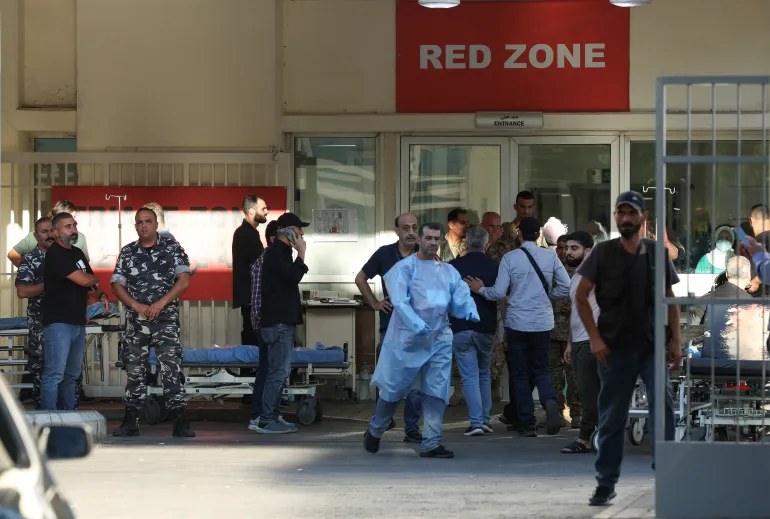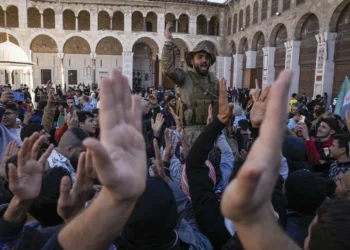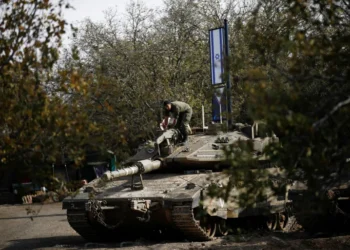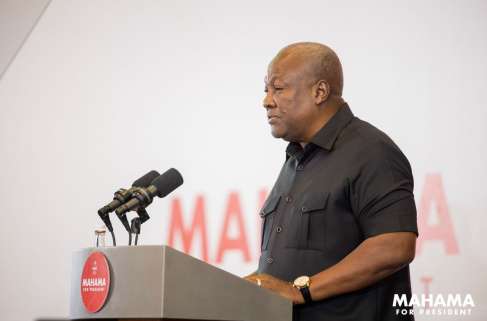At least nine people, including a girl, have been killed and 2,750 wounded in simultaneous explosions of pagers used by Hezbollah members across Lebanon.
According to local media reports, the communication devices exploded simultaneously in different parts of the country – including in Beirut’s southern suburbs, the Bekaa Valley and southern Lebanon – after being hacked by Israel.
Hezbollah held Israel “fully responsible” for the explosions.
“After examining all the facts, current data, and available information about the sinful attack that took place this afternoon, we hold the Israeli enemy fully responsible for this criminal aggression that targeted civilians too,” the Lebanese group said.
The group stated that it will continue to support the “Palestinian resistance” and added the “treacherous and criminal enemy will certainly be punished for this aggressive act”.
Lebanon’s Information Minister stressed that the cabinet condemns what he called an “Israeli criminal aggression, which is a dangerous violation to Lebanon’s sovereignty.”
Speaking from Beirut, Ziad Makary said, “Lebanon’s main priority is putting an end to the Israeli attacks targeting our citizens’ lives and livelihoods.
“These crimes are the responsibility of the international community,” he said, adding the cabinet has reached out to several states in order to pressure Israel to stop its “aggression” and abide by UN resolutions.
Additionally, Houthi spokesman, Mohammed Abdelsalam called the attack “a heinous crime and a violation of Lebanese sovereignty.”
“Our condolences and sympathy go to the families of the martyrs in the valiant Islamic resistance, asking God Almighty to have mercy and forgiveness for them, and to grant a speedy recovery to the wounded,” Abdelsalam said in a post on X.
“We are certain that Lebanon is capable of facing all challenges, and has a resistance movement capable of deterring the Zionist enemy entity and making it pay a heavy price for any escalation it may undertake against Lebanon.”
Mohammed Abdelsalam
A Step Towards Broader Escalation
Samuel Ramani, an Associate fellow at Royal United Services Institute, opined that the pager explosions are “definitely” a step “towards broader escalation.”
Speaking to a news agency, he added that it was important to place the incident into the wider regional context.
“Last week, there was a major attack by the Israelis on Syria that resulted in 18 deaths and the Houthis claimed to have fired a hypersonic missile at Israel,” he noted.
“So there are escalations going on beyond Lebanon and to all the theatres of the Axis of Resistance at once,” he added.
Ramani argued that up until now, neither Israel nor Hezbollah “really wanted a situation where there’s been a major two-front war developing.”
“But I think the Israelis are now sensing that this might be a historic capability to decapitate Hezbollah’s capabilities as the war in Gaza eventually winds down and they might be taking a step towards a broader escalation.
“So the jury is still out on what they really want but I think the prospect that Israel wants escalation is higher now than it was earlier.”
Samuel Ramani
Similarly, Mohamad Elmasry, a Professor at the Doha Institute, noted that while the goal of the attack on the communication devices remains unclear at this point, it could be a precursor of a larger military operation against Hezbollah.
“It’s going to be interesting to see what Hezbollah does from here. This disrupts their communications network. Over the past few months they’ve been using couriers so are they going to go back to that, and to what extent does that affect their abilities to wage war against Israel?”
Mohamad Elmasry
“It seems to me what you want to do before a large-scale invasion is to disable or disrupt the communication network of the enemy,” he said.
“I do think we’ll have to pay close attention to what happens over the next few hours and potentially a couple of days,” he added.
READ ALSO: Ghana’s Cocoa Crisis Worsens As 2024 Half-Year Revenues Plunge by Nearly $700 Million





















